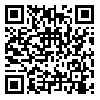BibTeX | RIS | EndNote | Medlars | ProCite | Reference Manager | RefWorks
Send citation to:
URL: http://jdisabilstud.org/article-1-2925-en.html
2- Associate Professor of Psychology, Tehran North Branch, Islamic Azad University, Tehran, Iran
3- Professor of Educational Psychology, Allameh Tabataba'i University, Tehran, Iran
Abstract
Background & Objectives: The development of science, technology, engineering, and mathematics (STEM) competencies have become very important these days, as they are the foundation for responsible citizenship. Mathematics plays an outstanding role in STEM education, and poor mathematics performance can cause difficulties and disabilities in performing other STEM subjects. Consequently, the tendency to study STEM in the future is reduced, especially in high school girls. There is vast research about influential factors on mathematics performance. The cognitive and motivational components seem to be the most influential factors in math performance, as they modify irrational beliefs, enhance rational ones, and increase self–efficacy and intrinsic motivation in individuals when studying mathematics. Growth mindset and self–determination training have both cognitive and motivational aspects that can affect math performance. In this regard, the present study aimed to compare these two interventions and evaluate their effectiveness in improving math performance.
Methods: The current quasi–experimental research employs a pretest–posttest with a 1–month follow–up design and a control group. The statistical population included all the ninth– and eighth–grade female students in the city of Shahr–e–Ray's high schools in the 2018–2019 academic year. Of those who qualified and volunteered to participate in the research,45 students were selected using the random method and placed in three groups. Growth mindset and self–determination training were applied to the experimental groups, and no training program was implemented for the control group. For the growth mindset group, we used growth mindset intervention designed by Khan non–profit Academy (2018) under the supervision of Stanford University. This group received 5 sessions of growth mindset intervention. The other experimental group received a self–determination intervention designed by Dashti Daryan et al. (2019) for 6 sessions. We considered students' final math scores at the end of the first semester as the pretest score, their midterm math scores of the second semester as the posttest, and students' final scores at the end of the second term as the follow–up score. The statistical data analysis was done in SPSS version 24 at two descriptive and inferential statistics levels. At the level of descriptive statistics, the mean and standard deviation, the level of inferential statistics, the analysis of variance with repeated measurements, and the Bonferroni post hoc test were used at the significance level of α=0.05.
Results: The results showed that the group, time, and group × time interaction effects on the math performance variable were significant (p<0.05). There was no significant difference between the average scores of the experimental groups in the math performance variable (p>0.999). However, a significant difference was observed between the experimental and control groups (p<0.05). The difference between the average of the pretest and posttest stages, as well as the pretest and follow–up in the variable of math performance in the groups of growth mindset (p=0.012, p<0.001, respectively) and self–determination (p=0.006, p=0.004, respectively), was significant. However, there was no significant difference between the average scores of the math performance variable in the posttest and follow–up stages in the experimental groups (p>0.999).
Conclusion: Based on the findings of this study, growth mindset and self–determination training effectively increase students' math performance. So, it is recommended that these two methods be used to improve students' mathematics performance.
| Rights and permissions | |
 |
This work is licensed under a Creative Commons Attribution-NonCommercial 4.0 International License. |




